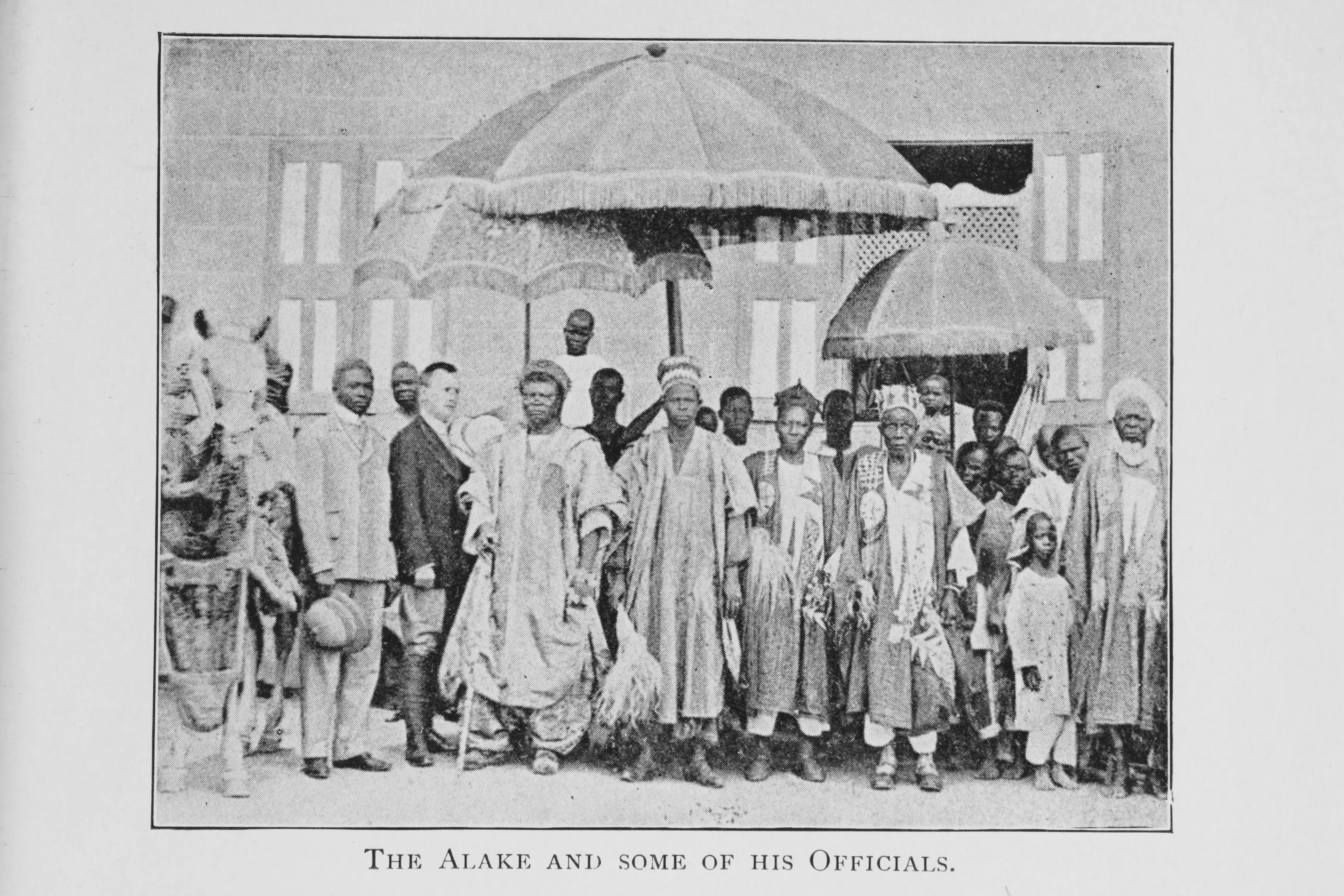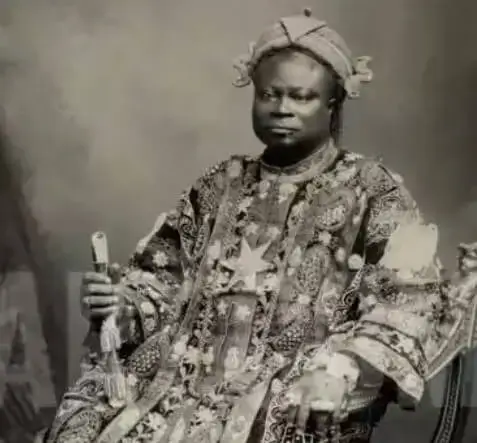Yoruba royalty stayed in the fancy house on Tinubu Square in 1900. Before Fernandez joined the two plots on Tinubu Square, at least Fernandez' side of the building must already have looked quite fancy, judging the fact that the Alake of Abeokuta, the traditional leader of that nearby city, slept under his roof on an official visit in 1900. The Yoruba king and his chiefs spent three days in Lagos and were received with all due respect by the colony's notables, from the bishop to the governor to the chief justice. That Fernandez' abode was chosen above all others to house the
highest member of the Abeokuta delegation says a lot, not just about the house, but also about society's esteem of its owner.

The newspaper describes a traditional Egba dance on Tinubu Square in honour of the delegation on day three of the visit. The dignitaries watched the two hour spectacle from a stage decorated with palms and flags, the crowd cheering when near the end Alake Gbadebo I himself joined the dance.

Who knows if afterwards Fernandez and his royal visitor would have enjoyed a glass of wine in Fernandez' apartment overlooking the square, before turning in? Whether the two houses that later would make up the monument were already joined together or not: the name Casa do Fernandez would have been buzzing all over town. The traditional ruler of Egbaland managed to keep Abeokuta independent for quite some time after the British has started colonising many parts of what now is called Nigeria. He tried to juggle independance and cooperation with the British. In 1904 he went on an official state visit to England, where he met King Edward VII. He returned home on the British steam ship Burutu. That same year, he signed an agreement with the British that gave them jurisdiction in certain legal matters in return for the formal recognition of Egbaland as an independent state. However, in the years after the colonial powers took over more and more of its administration. In 1914 at the amalgamation, the British included Egbaland in the newly created colony Nigeria.